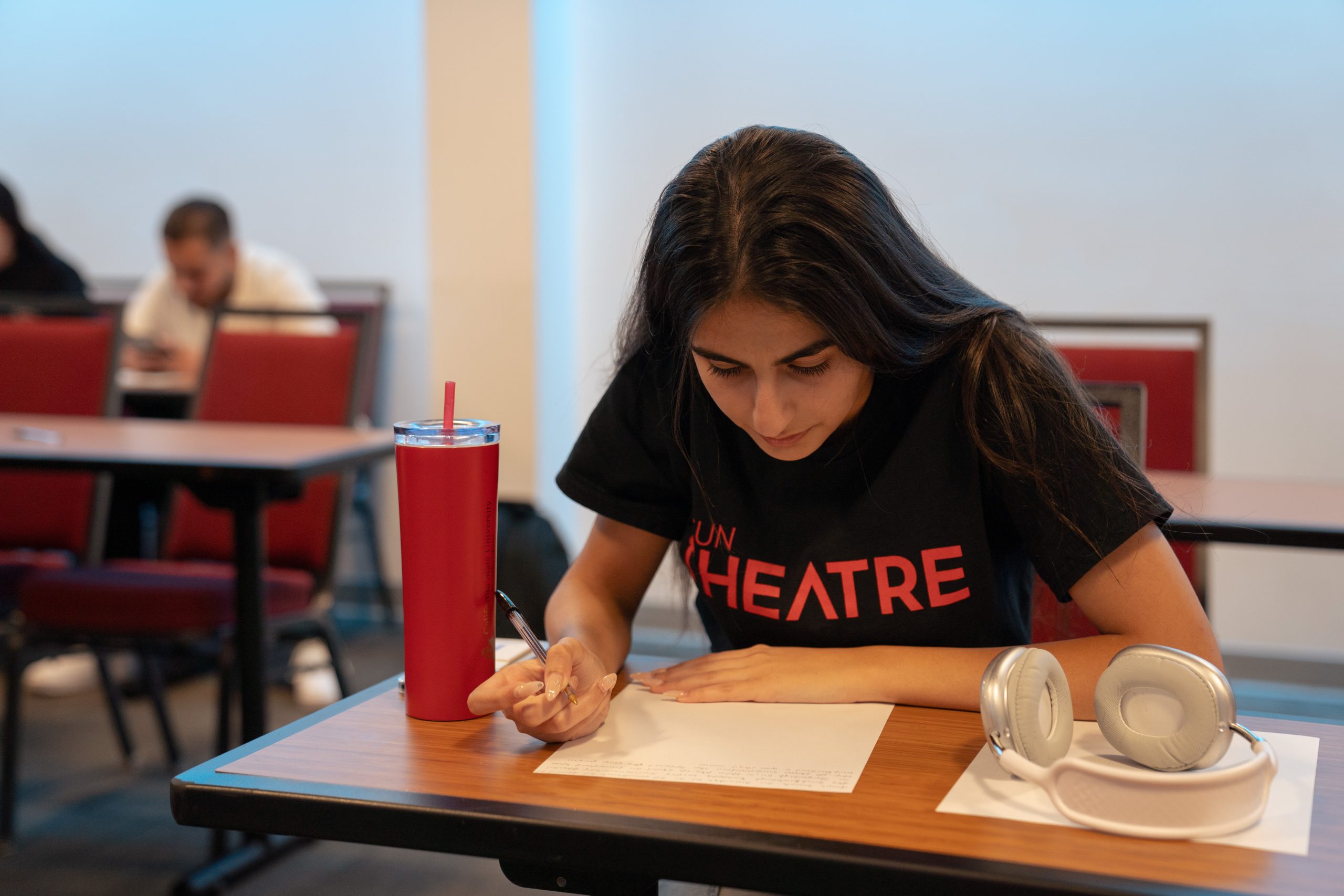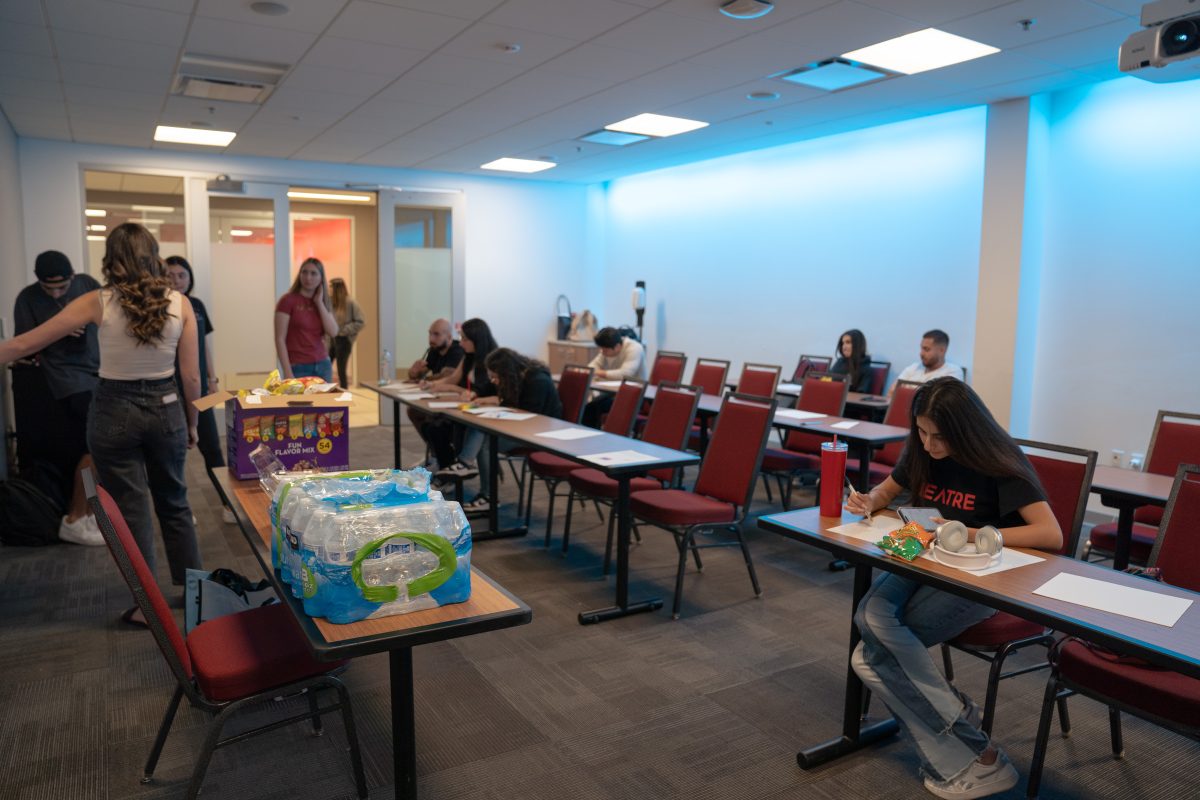Founder and Director of the Hidden Road Initiative Nanor Balabanian received text messages from her students asking her to save them from Azerbaijan’s bombardment of Artsakh.
The Nagorno Karabakh Republic, also known as Artsakh, is a self-determined state recognized internationally as a part of Azerbaijan. A majority of its population is Armenian. On Sept. 19, Azerbaijan launched an attack on the republic, which displaced over 100,000 people and ended with the agreement to dismantle all government institutions by Jan. 1, 2024.
Among these displaced were 42 English students of the Hidden Road
Initiative (HRI). To show support to their students, CSUN’s HRI chapter held their Letters to Artsakh event at the East Conference Center on Oct. 12, sending personalized letters to the forcibly displaced students.
HRI is a charitable non-profit organization that aims to provide educational and leadership opportunities for students living in remote villages in Armenia through annual educational summer camps, scholarship opportunities, and development projects. HRI has chapters at CSUN, UCLA, UC Berkeley, UCSB and UCSD.
The CSUN and UCLA chapters divided up the students and are both writing letters. CSUN’s members are writing to 13 students, some of which are a part of the same family.
Lily Chakrian, President of CSUN HRI, said the goal of the event was to show their students that they have advocates from across the world while also fundraising for the Artsakh Family Fund. Chakrian said she is one of the few executive members who has not been to Artsakh.
“It’s really hard because I haven’t been able to see and I don’t– can’t imagine what they’re going through and what they’re experiencing,” Chakrian said.
This fund was created by HRI in response to the displacement of Armenians from Artsakh. There is a $300 minimum donation which would sponsor a displaced family and would help cover living expenses for their initial months in Armenia. The organization has currently raised about $16,800, according to documents provided by HRI. The letters will be delivered by a HRI executive board member to Armenia in November.
Balabanian said although the scale of the displacement is unprecedented, she has experienced this in the past.
“I experienced the 2020 war and I was in Artsakh when we were all deported,” Balabanian said. “I [also] had to help students flee from Akhpradzor from the Sept. 2022 attacks.”
It is a persistent cycle of displacement that has not ended.
Nana Grigoryan, a former HRI student from Kolkhozashen, was in Artsakh while Azerbaijan was imposing its blockade. She applied and was admitted to an international baccalaureate in Israel, and had her tuition covered with the help of a fundraiser by Kooyrigs NGO, a nonprofit that “provides resources to the global Armenian network through launching community projects, implementing educational initiatives and amplifying marginalized voices.”
She was able to reach Armenia from Artsakh with the help of the Red Cross, and prepared to leave for university. Grigoryan began attending the university but was displaced due to the recent Israeli-Palestinian war, and has returned to Armenia.
Balabanian said the most they can do right now is to create communities so they can speak with one another, and these virtual English classes have been a space for this.
Every Saturday, HRI holds its English classes through Zoom. Students first go through a 30-minute thematic lesson and then break off into Zoom rooms with their personal teachers. This past Saturday, the class focused on words associated with fall, and started their class with an Armenian nursery rhyme, “My dear, it is fall!”
Balabanian said HRI currently has between 80-100 teachers, who are mostly from the U.S., and they teach about 120 students a week.
All of HRI’s students from Artsakh have been displaced and are receiving support from HRI’s Artsakh Family Fund for housing and immediate aid.
For now, these students can learn and live in peace and not under bombardment.
Note: Corrections have been made to this article since publishing.






